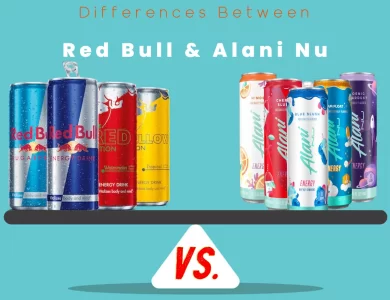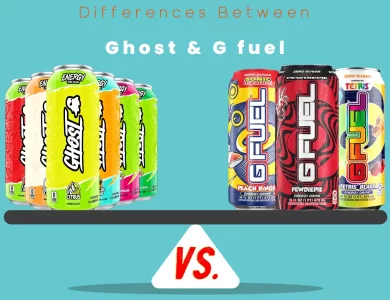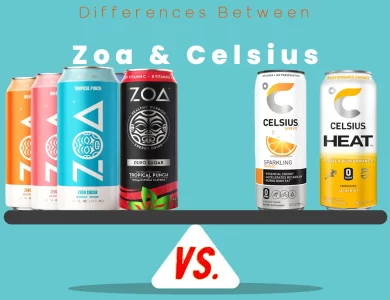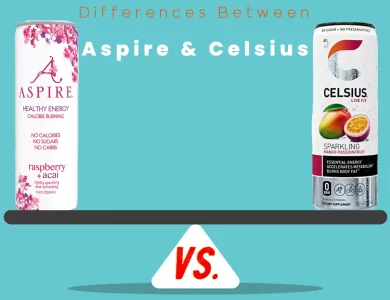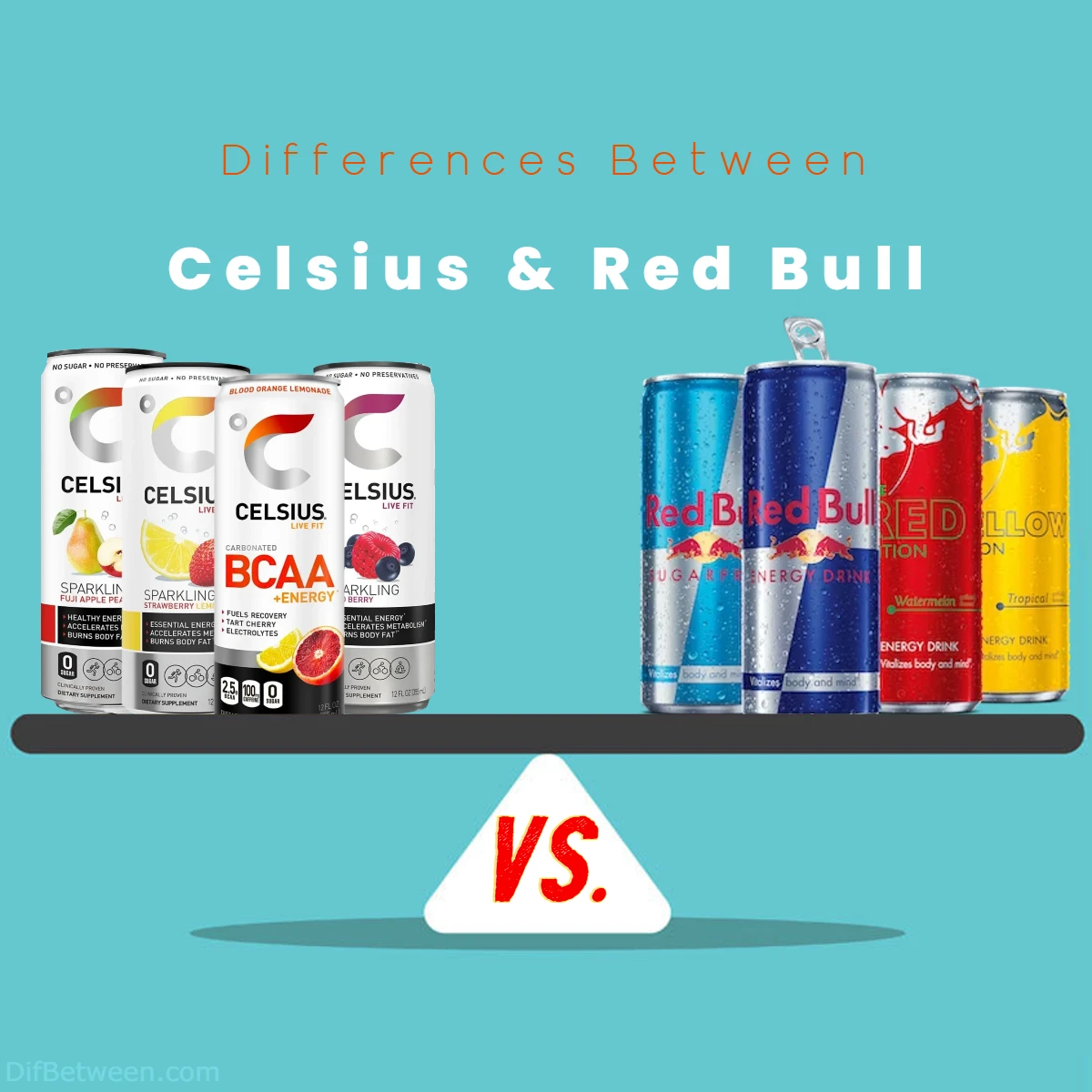
| Aspect | Celsius | Red Bull |
|---|---|---|
| Origins and History | Founded in 2004 by Greg Horn | Originated in Thailand in 1976 and introduced globally in 1987 by Dietrich Mateschitz |
| Key Ingredients | MetaPlus® formula containing Guarana extract, Green Tea extract, Caffeine, Ginger extract, etc. | Caffeine, Taurine, Sugars, B-Vitamins |
| Nutritional Profile | Low-calorie, around 10 calories per 12 fl oz (355 ml) serving, low sugar | Around 110 calories per 8.4 fl oz (250 ml) serving, higher sugar content |
| Caffeine Content (per serving) | 200 mg (12 fl oz / 355 ml) | 80 mg (8.4 fl oz / 250 ml) |
| Flavors and Variety | Extensive range including Sparkling Orange, Kiwi Guava, Peach Mango Green Tea, Raspberry Acai Green Tea, etc. | Limited range with occasional limited edition flavors like Tropical Fruits, Summer Edition Coconut Berry, etc. |
| Target Audience | Fitness enthusiasts and athletes | Broad audience, including thrill-seekers and those seeking a quick energy boost |
| Packaging Options | Cans, bottles, and powdered mixes | Iconic slim cans primarily for on-the-go consumption |
| Side Effects | Fewer reported side effects due to natural ingredients | Potential side effects like jitteriness and crash due to higher caffeine and sugar content |
| Price and Availability | Positioned at a premium price point, available in major retail stores and online | Competitive pricing, widely available in grocery stores, convenience shops, gas stations, etc. |
| Market Impact | Growing presence with a niche focus | Global phenomenon with a wide reach and cultural impact |
| Consumer Reviews | Praised for workout benefits and cleaner ingredients | Mixed experiences, with some loving the taste and immediate energy, while others report negative side effects |
| Global Reach | Expanding presence in international markets | Available in over 170 countries globally |
| Environmental Focus | Emphasizes sustainability with recyclable packaging | Undertakes efforts to address sustainability concerns and reduce environmental impact |
Buckle up as we embark on this invigorating ride to explore the unique features, ingredients, and effects that set these energy beverages apart. Whether you’re a fitness buff seeking to boost your workouts or a thrill-seeker craving an adrenaline-fueled adventure, we’ve got you covered! From the fitness-focused formula of Celsius to the iconic wings of Red Bull, get ready to quench your thirst for knowledge and make an informed choice for your next energy boost. So, let’s dive in and discover the secret ingredients that make Celsius and Red Bull the powerhouses they are!
Differences Between Celsius and Red Bull
The Origins and History
Celsius: Fitness-Driven and Pioneering
Celsius, unlike its competitors, has fitness at the core of its identity. It was born out of a vision to offer a drink that not only energizes but also enhances athletic performance and supports weight loss goals. The brand’s unique selling proposition lies in its proprietary MetaPlus® formula, a blend of natural ingredients that supposedly elevates metabolism, making it a favorite among fitness enthusiasts.
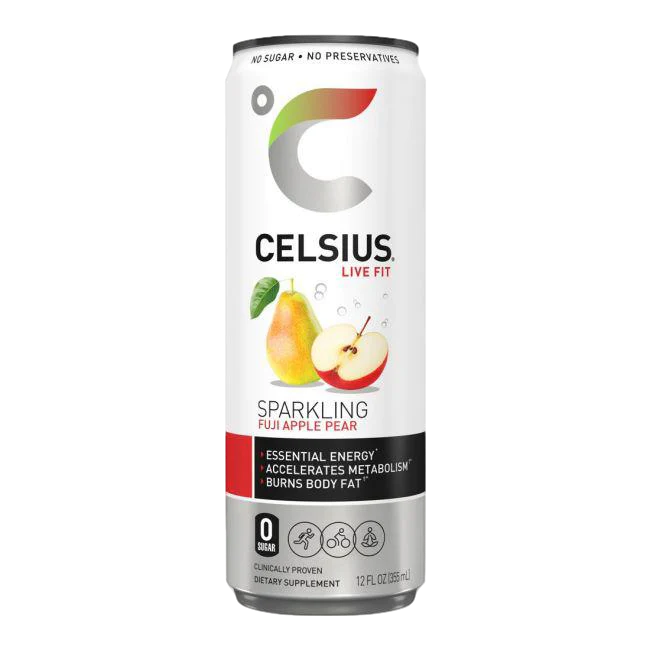
The history of Celsius dates back to 2004 when it was founded by Greg Horn. Since then, the brand has gained popularity and established itself as a fitness-oriented energy drink, fostering partnerships with professional athletes and fitness centers worldwide.
Red Bull: An Iconic Energy Pioneer
Red Bull, on the other hand, is a true pioneer in the energy drink industry. It originated in Thailand in 1976 and was later refined and introduced to the global market by Dietrich Mateschitz in 1987. The brand’s meteoric rise to fame was fueled by its unique marketing strategies and sponsorship of extreme sports events. Red Bull’s iconic slogan “Red Bull gives you wings” has become synonymous with the promise of an energy surge when needed the most.
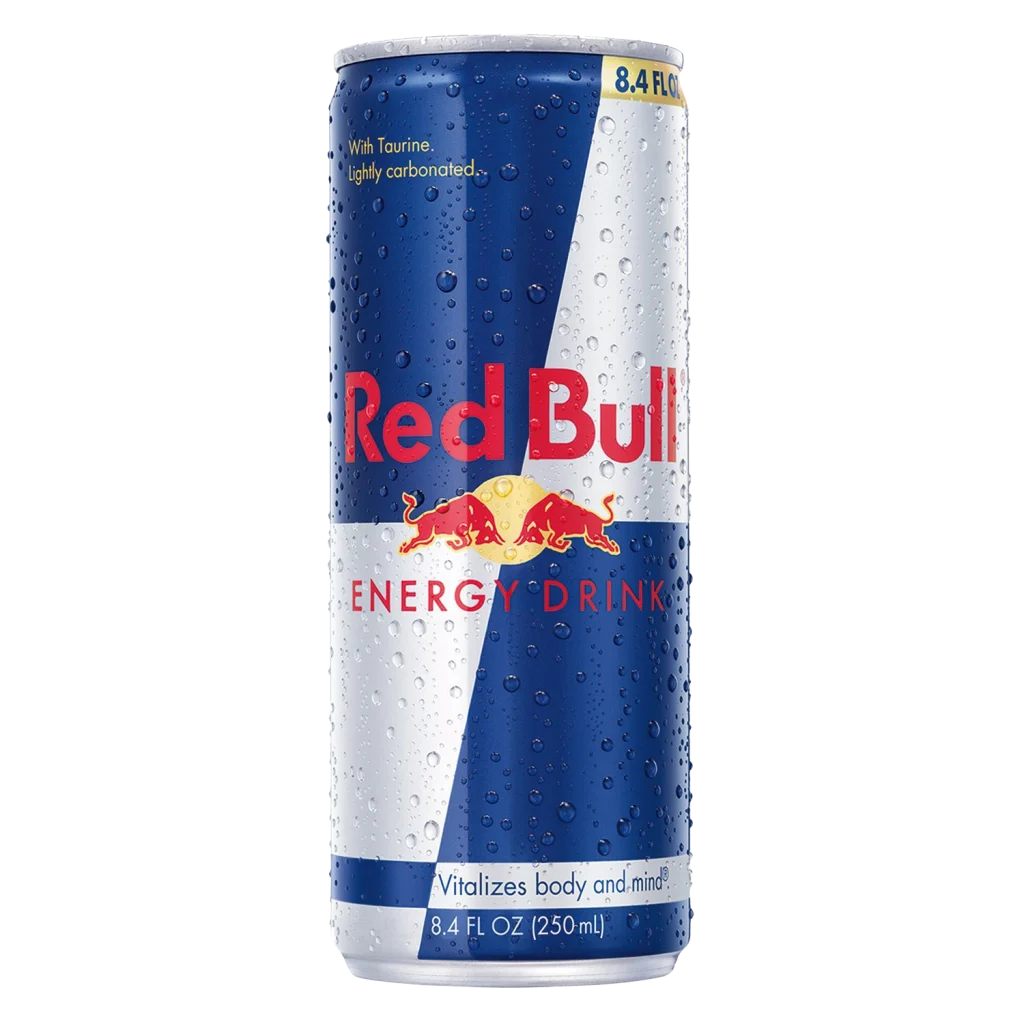
Red Bull’s history and innovative marketing approach have cemented its position as one of the most recognizable energy drink brands globally. It has inspired a multitude of competitors in the market, leading to the energy drink phenomenon we witness today.
Key Ingredients
Celsius: The Fitness-Focused Blend
Celsius takes pride in its healthier approach to energy enhancement. Unlike traditional energy drinks loaded with excessive sugar and artificial additives, Celsius relies on a combination of functional ingredients to deliver its promise. Let’s take a closer look at some key components of Celsius:
| Ingredients | Function |
|---|---|
| MetaPlus® | A proprietary blend of Guarana extract, Green Tea extract, Caffeine, Ginger extract, and other natural ingredients. Claims to boost metabolism and promote calorie burning. |
| Vitamin C and B-Complex | Essential vitamins that support the body’s energy metabolism and immune system. |
| Chromium | Helps regulate blood sugar levels and may aid in appetite control. |
| Electrolytes | Assists in hydration and replenishment of essential minerals during physical activity. |
Red Bull: The Taurine and Caffeine Powerhouse
Red Bull, renowned for its distinct flavor and effectiveness, owes its energy-boosting capabilities to a few key ingredients. Let’s delve into the primary components that give Red Bull its wings:
| Ingredients | Function |
|---|---|
| Caffeine | The primary stimulating ingredient that enhances alertness and temporarily combats fatigue. |
| Taurine | An amino acid that, despite popular belief, doesn’t possess direct energizing effects. Instead, it supports cardiovascular health and potentially enhances caffeine’s impact. |
| Sugars | Provides a quick source of energy, but can also contribute to the crash experienced after the initial energy surge. |
| B-Vitamins | Includes B3 (Niacin), B5 (Pantothenic Acid), B6 (Pyridoxine), and B12 (Cobalamin) – play a role in energy metabolism and overall vitality. |
Nutritional Profile
Celsius: The Calorie-Conscious Choice
One of the major differentiating factors between Celsius and Red Bull lies in their nutritional profiles. Celsius takes a more health-conscious approach by providing a low-calorie option, suitable for those looking to maintain a healthy lifestyle. A typical 12 fl oz (355 ml) serving of Celsius contains around 10 calories, 2 grams of total carbohydrates, and zero sugars, making it a more favorable option for calorie counters and dieters.
The brand also offers a range of variations, including sparkling and non-carbonated options, each tailored to cater to specific tastes and preferences. Additionally, Celsius is free from artificial preservatives and sweeteners, catering to consumers seeking a cleaner energy drink choice.
Red Bull: The Sugar Rush
Red Bull, on the other hand, is known for its sweet and distinctive flavor, primarily attributed to the presence of sugars in its formulation. A regular 8.4 fl oz (250 ml) can of Red Bull contains around 110 calories and approximately 27 grams of sugars. While this sugar content provides an instant energy boost, it also contributes to the notorious “sugar crash” experienced by some consumers after the initial spike.
The higher calorie and sugar content in Red Bull may make it less appealing to individuals watching their daily caloric intake or those looking for a healthier energy drink option.
Caffeine Content: Celsius vs. Red Bull
Caffeine, the primary active ingredient in most energy drinks, is responsible for the instant boost in alertness and energy. Let’s explore the caffeine content in Celsius and Red Bull to understand how they compare:
Celsius:
Celsius offers a range of products with varying caffeine content, catering to different preferences and tolerance levels. A typical 12 fl oz (355 ml) can of Celsius contains approximately 200 mg of caffeine. However, it’s essential to note that specific flavors or variations might have slightly different caffeine concentrations.
The caffeine in Celsius is derived from natural sources like Guarana extract and Green Tea extract, which may contribute to a smoother and longer-lasting energy release compared to synthetic caffeine sources.
Red Bull:
Red Bull, with its iconic slim can, contains around 80 mg of caffeine per 8.4 fl oz (250 ml) serving. Like Celsius, Red Bull uses caffeine from natural sources, combined with taurine and B-vitamins to provide its energizing effects.
The caffeine content in Red Bull is lower than that of Celsius, making it a more moderate option for those seeking a milder boost.
| Energy Drink | Caffeine Content (per serving) |
|---|---|
| Celsius | Approximately 200 mg (12 fl oz / 355 ml) |
| Red Bull | Approximately 80 mg (8.4 fl oz / 250 ml) |
Flavors and Variety
Celsius: Catering to Diverse Tastes
Celsius boasts an extensive array of flavors to suit various palates and preferences. Some of the popular flavors include:
- Sparkling Orange
- Kiwi Guava
- Peach Mango Green Tea
- Raspberry Acai Green Tea
- Watermelon Berry
- Grape Rush
The brand continuously introduces new and innovative flavors to keep its offerings fresh and exciting, enticing both loyal customers and newcomers alike. Whether you’re a fan of fruity or more traditional tastes, Celsius ensures there’s something for everyone.
Red Bull: Classic and Limited Editions
Red Bull, despite its iconic status, maintains a more limited range of flavors compared to Celsius. While the classic Red Bull Original continues to be the primary choice for many, the brand occasionally releases limited edition flavors during promotional periods or in collaboration with artists and events.
Some of the limited editions released in the past include Tropical Fruits, Summer Edition Coconut Berry, and Winter Edition Plum Twist. However, the classic flavor remains the most readily available option on the market.
Target Audience and Marketing Approach
Celsius: The Athlete’s Ally
Celsius has carved a niche for itself in the market by targeting fitness enthusiasts, athletes, and individuals pursuing an active lifestyle. Its marketing campaigns often feature athletes and fitness influencers, promoting the drink as an ideal companion for workouts and intense physical activities.
The brand’s emphasis on a healthier formulation and calorie-burning benefits resonates with those seeking an energy boost without compromising their commitment to well-being.
Red Bull: Fuelling Adventure and Fun
Red Bull has taken a different route, focusing on a broader target audience that extends beyond fitness. Through its daring and adrenaline-filled marketing campaigns, Red Bull appeals to thrill-seekers, adventurers, and young individuals looking for an energy boost to fuel their passions and pursuits.
The brand’s association with extreme sports events, music festivals, and daredevil stunts reinforces the image of Red Bull as a beverage that enhances excitement and energy for life’s adventures.
Packaging and Size Options
Celsius: On-the-Go Convenience
Celsius is available in various convenient packaging options to accommodate different lifestyles. You can find it in cans, bottles, and even powdered mix formats. The canned varieties are particularly popular for on-the-go consumption, making them ideal for workouts, office breaks, or outdoor activities.
The brand’s dedication to eco-friendliness is evident in its decision to use recyclable materials for packaging, appealing to environmentally-conscious consumers.
Red Bull: The Iconic Slim Can
Red Bull is most commonly associated with its distinctive slim can design, which has become synonymous with energy drinks in general. The 8.4 fl oz (250 ml) can is a popular choice for its portability and easy grip, making it suitable for consumption during various occasions.
Red Bull’s sleek and recognizable packaging has played a significant role in the brand’s marketing success, allowing it to stand out on shelves and at events.
Side Effects and Health Considerations
Celsius: A Gentler Energy Elixir
Due to its focus on natural ingredients and a healthier approach to energy enhancement, Celsius generally has fewer reported side effects compared to traditional energy drinks. However, like all energy beverages, it still contains caffeine and should be consumed in moderation, especially by individuals sensitive to caffeine.
Some potential side effects of excessive caffeine intake can include jitteriness, rapid heart rate, and difficulty sleeping. It’s essential to follow the recommended serving size and not exceed personal tolerance levels.
Red Bull: Caffeine and Sugar Concerns
As a more traditional energy drink, Red Bull’s higher sugar and caffeine content may lead to more pronounced side effects for some individuals. Excessive consumption of sugary energy drinks can contribute to weight gain and dental issues, while too much caffeine can lead to headaches, nervousness, and gastrointestinal problems.
Consumers with heart conditions, caffeine sensitivity, or other health concerns should exercise caution when consuming Red Bull or any other energy drink high in caffeine.
Price and Availability
Celsius: Premium Performance at a Cost
As a specialized fitness-oriented energy drink, Celsius tends to be positioned at a slightly higher price point compared to regular energy drinks. The brand’s commitment to using quality natural ingredients and targeting health-conscious consumers contributes to the premium pricing. However, many users find the potential benefits, such as increased metabolism and improved workout performance, well worth the investment.
Celsius is readily available in major retail stores, fitness centers, and online platforms, making it accessible to consumers across various regions. The brand’s growing popularity has also led to an expansion of its distribution channels, ensuring its products reach a wider audience.
Red Bull: Widely Available and Affordable
Red Bull, being an industry pioneer and one of the most recognizable energy drink brands globally, benefits from economies of scale. This allows Red Bull to maintain competitive pricing, making it more affordable for a broad range of consumers.
Furthermore, Red Bull’s extensive distribution network ensures that you can find it almost anywhere, from grocery stores and convenience shops to gas stations and vending machines. Its ubiquity and reasonable pricing contribute to its status as a go-to energy drink for many individuals seeking a quick pick-me-up.
Market Impact and Industry Influence
Celsius: Niche and Growing Strong
Celsius’ focused approach on fitness and a healthier lifestyle has carved out a distinct niche in the energy drink market. As more consumers prioritize their well-being and seek functional beverages, Celsius has witnessed steady growth and an expanding fan base.
The brand’s success has inspired other energy drink companies to explore healthier formulations and cater to specific demographics, fostering a wave of innovation in the industry. While still a relatively smaller player compared to giants like Red Bull, Celsius’ impact on the energy drink market cannot be underestimated.
Red Bull: Setting the Energy Drink Standard
Red Bull’s inception marked the beginning of the energy drink revolution, and its influence on the industry remains unparalleled. The brand’s bold marketing strategies and iconic logo have left an indelible mark on pop culture, making it a household name around the world.
Red Bull’s massive success has led to the emergence of countless competitors in the energy drink market, driving the demand for energy-enhancing beverages and reshaping the beverage industry as a whole. Its role as a trendsetter has propelled the category of energy drinks to new heights.
The Controversies Surrounding Energy Drinks
Celsius: Limited Controversies
As a fitness-driven energy drink, Celsius has generally steered clear of significant controversies. The brand’s emphasis on natural ingredients and healthier formulations has contributed to its positive image and customer loyalty.
However, like all energy drinks, Celsius still contains caffeine, which, when consumed in excess, can lead to adverse effects. To ensure a safe and enjoyable experience, consumers should remain mindful of their caffeine intake and adhere to the recommended serving sizes.
Red Bull: Scrutiny and Regulation
Red Bull, given its prominence and widespread consumption, has faced its fair share of scrutiny over the years. Concerns have been raised about the potential health risks associated with consuming large amounts of caffeine and sugar.
In some regions, there have been debates over energy drink regulation, particularly regarding sales to minors and labeling requirements. Red Bull and other energy drink manufacturers have taken steps to provide clear warnings on their products, urging consumers to be mindful of their caffeine intake.
Consumer Reviews and Testimonials
Celsius: Raving about Results
Celsius has garnered a loyal following among fitness enthusiasts who praise the drink for its positive effects on their workouts and overall energy levels. Many consumers report feeling more focused and energized without the jitters or crash commonly associated with other energy drinks. The natural ingredients, particularly the MetaPlus® formula, receive accolades for supporting weight loss goals and providing a healthier alternative to traditional energy drinks.
Athletes, in particular, appreciate Celsius as a pre-workout option, claiming it helps them push through intense training sessions and achieve better results. The brand’s commitment to transparency and its cleaner ingredient profile are often highlighted in consumer reviews, resonating with those seeking a smarter energy solution.
Red Bull: A Mixed Bag of Experiences
Red Bull’s long-standing presence in the market means there is no shortage of consumer reviews and testimonials. While many consumers love the classic taste and instant energy boost, others report experiencing negative side effects, such as feeling jittery or experiencing a crash after the initial burst of energy.
Individual tolerance to caffeine and sugar plays a significant role in these varied experiences. Some consumers appreciate the convenience and availability of Red Bull, using it to power through long days, stay awake during late-night study sessions, or stay alert during road trips.
However, critics of Red Bull express concerns about the sugar content and potential health risks associated with consuming excessive amounts of energy drinks. As with any caffeinated beverage, moderation is key to enjoying the benefits while minimizing adverse effects.
Global Reach and Cultural Impact
Celsius: Expanding Horizons
Celsius’ journey into the international market is ongoing, with the brand actively seeking to expand its global presence. Initially more focused on the North American market, Celsius has gradually made strides in reaching consumers in Europe, Asia, and other regions.
As the fitness and health-conscious movement gains momentum worldwide, Celsius aims to capitalize on this growing interest in functional and healthier beverages. Its unique positioning as an energy drink that promotes weight loss and supports active lifestyles has the potential to resonate with diverse audiences globally.
Red Bull: The Global Phenomenon
Red Bull’s presence knows no bounds; it has solidified its status as a true global phenomenon. Red Bull is available in over 170 countries, making it one of the most widely distributed energy drinks on the planet.
The brand’s innovative marketing campaigns, sponsorships, and partnerships have left a lasting impact on various cultures and demographics. Red Bull’s association with extreme sports, music, and high-octane events has become part of its identity, inspiring millions to embrace their passions and seek adventure.
Environmental Consciousness
Celsius: A Focus on Sustainability
Celsius has taken steps towards sustainability by using recyclable materials for its packaging. The brand’s commitment to reducing its environmental footprint aligns with the growing awareness of eco-consciousness among consumers.
By adopting sustainable practices, Celsius aims to attract consumers who prioritize eco-friendly choices and care about the impact of their consumption on the planet. This eco-friendly approach also resonates with fitness enthusiasts who value overall wellness, which includes the well-being of the environment.
Red Bull: Balancing Impact
As one of the leading energy drink brands globally, Red Bull faces the challenge of managing its environmental impact due to its widespread distribution and popularity. The brand has made efforts to address sustainability concerns by supporting environmental initiatives and reducing its carbon footprint.
However, given its scale and reach, Red Bull continues to be under scrutiny from environmental activists and conscious consumers. As with any large corporation, balancing environmental considerations with market demands remains an ongoing process.

Celsius or Red Bull: Which One Should You Choose?
Choosing between Celsius and Red Bull ultimately depends on your personal preferences, lifestyle, and specific needs. Both energy drinks have their unique strengths and appeals, so let’s summarize the key factors to consider when making your decision:
Choose Celsius If:
- Fitness-Oriented Lifestyle: If you prioritize fitness and an active lifestyle, Celsius may be the better choice. Its MetaPlus® formula aims to boost metabolism and support weight loss goals, making it a favorite among athletes and fitness enthusiasts.
- Health-Conscious: If you are conscious about the nutritional content of your beverages, Celsius offers a healthier option. With low calories, zero sugars, and a focus on natural ingredients, it aligns with those seeking a cleaner energy drink.
- Calorie Counting: If you’re counting calories and watching your daily intake, Celsius is a favorable option with its low-calorie profile.
- Diverse Flavors: If you enjoy a variety of flavors, Celsius has an extensive range to choose from, catering to different taste preferences.
- Eco-Friendly: If sustainability is a priority for you, Celsius’ use of recyclable materials for packaging may resonate with your values.
Choose Red Bull If:
- Immediate Energy Boost: If you need a quick energy surge without focusing on specific fitness or weight loss goals, Red Bull’s classic formula with caffeine and sugars can provide an instant pick-me-up.
- Iconic Taste and Appeal: If you appreciate the iconic taste and cultural significance of Red Bull, it remains a popular choice among a broad audience.
- Convenience and Availability: If you want an energy drink readily available almost anywhere, Red Bull’s extensive global reach ensures you can find it in numerous stores and locations.
- Thrill-Seeker and Adventure: If you associate energy drinks with exciting experiences and a sense of adventure, Red Bull’s association with extreme sports and daredevil stunts may resonate with you.
- Affordability: If you’re looking for a more budget-friendly option, Red Bull’s competitive pricing makes it a cost-effective choice.
Ultimately, both Celsius and Red Bull have their place in the energy drink market, offering different experiences to cater to diverse consumer preferences. Remember to consume any energy drink in moderation and be mindful of your personal tolerance to caffeine and sugar.
Whether you’re seeking an energy boost for your workouts or simply need a quick pick-me-up during your day, make your choice based on what aligns with your values, taste preferences, and lifestyle. Energize responsibly and enjoy the journey ahead, whatever your choice may be!
FAQs
Celsius stands out with its fitness-driven approach, focusing on natural ingredients and a proprietary MetaPlus® formula that aims to boost metabolism and support weight loss. It caters to fitness enthusiasts and those seeking a healthier energy drink option.
Red Bull’s key ingredients include caffeine, taurine, sugars, and B-vitamins. In contrast, Celsius contains a blend of Guarana extract, Green Tea extract, Ginger extract, and other natural components in addition to caffeine. Celsius emphasizes cleaner ingredients with no sugars and lower calorie content.
Celsius is particularly popular among athletes due to its fitness-oriented formula and potential benefits for workouts. The MetaPlus® blend may aid in enhancing performance and promoting calorie burning during physical activity.
Celsius is often regarded as a healthier option due to its lower sugar content and use of natural ingredients. Red Bull, while providing a quick energy boost, has a higher sugar content and may not be the ideal choice for health-conscious consumers.
Yes, Celsius offers an extensive array of flavors to suit different tastes, ranging from Sparkling Orange and Kiwi Guava to Peach Mango Green Tea and more. Red Bull, on the other hand, has a more limited selection, with occasional limited edition flavors.
Both energy drinks contain caffeine, and individuals sensitive to caffeine or those with underlying health conditions should consume them in moderation. It’s essential to consider individual tolerance levels and consult with a healthcare professional if necessary.
Celsius emphasizes sustainability by using recyclable materials for its packaging. Red Bull has made efforts to address environmental concerns but continues to face scrutiny from environmental activists due to its widespread distribution.
Red Bull has a vast global presence and is available in over 170 countries, making it one of the most widely distributed energy drinks. While Celsius is expanding its international reach, Red Bull remains a more ubiquitous option.
Consumers praise Celsius for its fitness benefits and cleaner ingredients, while reviews for Red Bull vary. Some consumers love its taste and instant energy, while others report experiencing negative side effects such as jitteriness and crashes.
The choice between Celsius and Red Bull depends on your specific preferences, lifestyle, and health goals. If you prioritize fitness and cleaner ingredients, Celsius may be the better fit. For quick energy boosts and a more iconic taste, Red Bull could be the ideal choice. Remember to consume any energy drink in moderation and consider your personal preferences before making a decision.
Read More:
Contents
- Differences Between Celsius and Red Bull
- The Origins and History
- Key Ingredients
- Nutritional Profile
- Caffeine Content: Celsius vs. Red Bull
- Flavors and Variety
- Target Audience and Marketing Approach
- Packaging and Size Options
- Side Effects and Health Considerations
- Price and Availability
- Market Impact and Industry Influence
- The Controversies Surrounding Energy Drinks
- Consumer Reviews and Testimonials
- Global Reach and Cultural Impact
- Environmental Consciousness
- Celsius or Red Bull: Which One Should You Choose?
- FAQs

